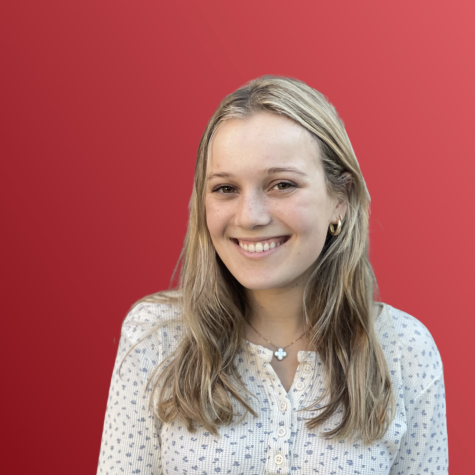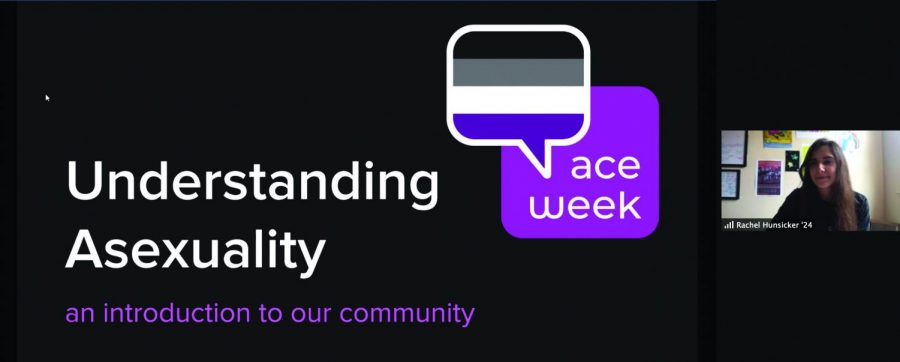Colgate Women’s Studies Center Promotes Asexuality Awareness Week
Despite current challenges posed to in-person meetings, Colgate Women’s Studies still worked to promote Asexual Awareness Week on campus. The Colgate Women’s Studies Instagram account provided definitions and information about asexuality throughout the week, from Oct. 25 through Oct. 31, and students were encouraged to wear purple and attend a Webinar called “Understanding Asexuality” hosted by first-years Rachel Hunsicker and Jenna Gold-Wienk on Friday, Oct. 30.
Hunsicker approached Coordinator for the Women’s Studies Program Susan Thomson about organizing an Asexual Awareness week after hearing about Colgate students in the past who had coordinated it.
“We are trying to help people understand not only the basics of the community,” Hunsicker said. “But if they were to meet someone in the community they won’t feel overwhelmed or nervous about not understanding what being asexual would mean.”
Hunsicker and Gold-Wienk discussed asexuality as an umbrella term and the asexuality spectrum in their webinar via Zoom. Hunsicker also addressed some common misconceptions.
“Asexuality is commonly defined as ‘not being sexually attracted to people,’” Hunsicker said. “A more accurate definition would be the experience of not being sexually attracted or others; not valuing sex or sexual attraction enough to pursue it.”
The Colgate Women’s Studies Instagram posted definitions and explanations for terms such as asexuality, aromatic, grey-sexual, ace-flux, demiromantic and grey-romantic. Junior August Halbach, who runs the Instagram account, explained how asexual identities commonly get mixed up because they sound similar and stressed the importance of making a separate post for each identity.
“Asexuality is one of those things that people don’t really understand, not because it is super complicated but because there is not a lot of awareness,” Halbach said.
According to Halbach, the Instagram posts made throughout the week were designed to create a virtual sense of community as physically gathering for this event in the Women’s Studies Center was not possible due to COVID-19 restrictions.
“I’m hoping that Instagram can be used as a way to keep people involved in the center and keep people educated on things that they wouldn’t necessarily otherwise look into,” Halbach said.
During her Webinar, Hunsicker also encouraged people to read “The Invisible Orientation” by Julia Sondra Decker, a book about asexuality. There was also a Moodle page created as a resource for the book. The Webinar ended with an open Q&A.
“I was very excited to do this on a college campus,” Hunsicker said. “Especially during a pandemic, being able to have a voice and make people aware of asexuality is important, even if we had to do most of it virtually.”
In response to a question about how to make people who identify as being on the asexual spectrum feel more comfortable on campus, Gold-Wienk said that emphasizing that sexual or romantic experiences are not integral to having a “full life” is important.
“You can still have a life without that, and it’s completely okay to not want that at all,” Gold-Wienk said.

Sophie Mack is a senior from San Francisco, CA concentrating in art history and minoring in political science. She has previously served as a staff writer...











